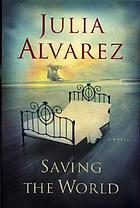Where COVID-19 Lurks, Little Free Libraries Empty
Michael Sedano
This is why I avoid shoulda-woulda-coulda yearnings that tend to lapse into morose self-pity. I could drive to the public library, see if it has new DVDs to fill-in lacunae in my piano trio collection, then browse the new books shelves for good mysteries by raza writers. After, I woulda walked to El Toreo, the region's best Mexican food, for a big bowl of cocido and laugh with really friendly people. I shoulda gone to the lawnmower shop and buy a small tiller to work my earth; it's time and I can't do it by hand any more. The Prius needs a tune up. I should drive around Barbara's T-Bird, or get rid of it.
Barbara and I are in the "vulnerable" group, so all the stuff I don't do I don't do gladly. The State and County and City contagion rules say I can go walkabout. Today, I set out with a mission. To see what the neighbors are sharing in their Little Free Libraries.
The area of Pasadena and Altadena I walkabout in is called Historic Highlands. If you meander through its streets you'll see many yards with "Welcome Immigrants" signs, Bernie and Warren, and Little Free Libraries. You never know what might catch your interest, free.
My mission was photograph and catalog today's shelves and get in around two miles while avoiding people except for a chin nod or a good morning across the street. I also invested trust in serendipity to send me home with a book to read.
Uphill and a half mile I reach my first Little Free Library. It's empty but for a green 3"x5" file card bearing a sign of the times:
Please do not place anything in library. Library temporarily closed to avoid transmission of coronavirus. Thank you!
The March gathering--just before the isolation orders--of The Book Club of the Stanford Latina/o/x Alumni Association (SLAA) of Southern California, enjoyed a lively talk in the company of Manuel Ramos' The Golden Havana Night: A Sherlock Homie Adventure. I'm an honorary member, being a UC and USC diploma'd tipo, so the group isn't all Stanfordians but indeed we all count ourselves readers of Chicana Chicano literature y más.
The June 28th 2020 meeting, in Monrovia, Ca, reads Julia Alvarez' smallpox-themed novel, Saving the World. Likely, libraries have copies of this, and all, Alvarez' superb work. It's well worth reading, how apt in these plague times, que no? Some readers will also be reading Havana Libre by Robert Arellano.
Here's an excerpt from my 2006 review of Julia Alvarez' Saving The World.
Readers of a certain age need to prepare themselves when they read Saving the World, for one of those rare moments in literature, a moment of recognition. As we meet Alma, she's fighting depression borne of realizing she is passing into a new stage of life. Richard's parents are dead, Alma's mother growing older and helpless, Alma has her two friends, and Richard. She feels as if her writing career has run its course, but beyond this, her life is running out. In a morbid yet exceedingly practical project, Alma systematically goes through the house, writing down operating instructions for all the chores her husband does. If Richard dies before Alma, the widow will at least be able to clear snow off the driveway. Although Alma follows a worst case scenario approach to her world, certain readers will recognize the stunning practicality of the character's worry.
There's a delightful "author's message" moment as the novel speeds to a surprising climax. Alma's world has turned completely inside out--a worst case scenario sprung out of nowhere to trap Alma and Richard in a wild third-world amateur show with guns.
This is what it means to live in a fallen world, she thinks. If only she'd been paying closer attention when she read to Helen from Paradise Lost.
That, too, seems laughable here. The idea that literature would have made her live her life any differently than she has. And besides, she doesn't have the luxury right now of being an indvidual. 226
Alma sinks deeply into despair but pulls herself out by remembering the story she'd been working on, the smallpox expedition and its Isabel whom history has forgotten her surname.
Isabel! The name comes unbidden, the one person who might understand the tangled web of head, hands, heart, and helath Alma finds herself caught in right now. Why not Isabel? Who cares if her story took ploace a long time ago, if it is half made up, if history wants control of the facts? History can keep the facts. But Alma musn't lose faith. Isabel's story is keeping the knowledge of something alive in Alma, belief in a saving grace. 232
There's at least one other allusion to this power of the word. It is wrapped up in the final pages that should be enjoyed for the first time directly by the reader. As should the entire novel. There are so many interesting characters, interpersonal moments, questions, the reader will be reluctant to see Alvarez bring the book to a close.




No comments:
Post a Comment